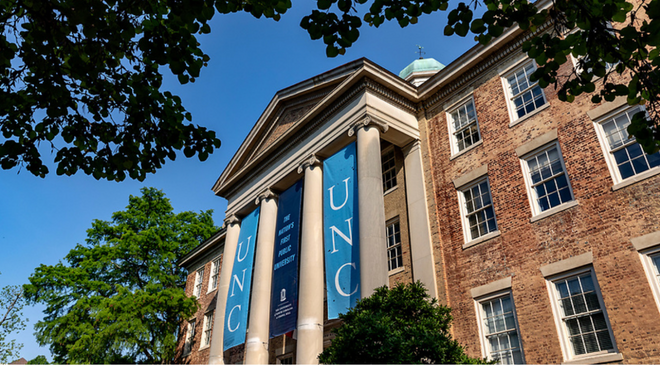Last Wednesday, I shared at the Chapel Hill Town Council meeting that having more affordable housing would benefit two groups at UNC Chapel Hill who are (or want to be) part of the town: staff, and graduate and professional students. It’s my job to speak on behalf of those 11,000 graduate and professional students. I believe that the time is ripe for the town and the university to work together to create additional affordable housing that will benefit both entities and the entire community.
First, I want to describe how more affordable housing would help these students and the university. Then I’ll make a case for why it would help the town.
Broadly speaking, graduate and professional students (GAPS) fall into two categories: those who are paid by the university to also work as teachers, researchers, and administrative assistants, and those who are not. Among the paid group, there is a minimum pay rate, usually called a “minimum stipend,” which recently increased to $20,000 for a 9-month period. That comes out to about $2,200/month for a 9-month period or about $1,700/month for a 12-month period.
A recent survey conducted by the Graduate and Professional Student Government (GPSG) with 1500 respondents revealed that the average cost of rent and utilities paid by GAPS is approximately $1,300/month. That means that if they want to stretch their income to last through the summer, when classes are out but they’re still expected to make degree progress, they have about $400 left each month to meet all their needs after housing.
The US Department of Housing and Urban Development says that spending more than 30% of your income on rent makes you “rent burdened”; spend more than 50% and you become “severely” rent burdened. GAPS at the minimum stipend are paying 76% of their income to housing. Those in the highest-paid department on campus, who will earn $37,000 next year, would pay 42%.
I can’t speak with as much authority on the situation for staff, which is represented by the Employee Forum, except to say that salaries are available in the System’s salary database and plenty of Chapel Hill’s full-time staff would also be rent burdened.
So, building housing would clearly benefit these people. How would it benefit the university and the town?
Both the town and the university are committed to diversity, equity, and inclusion. Cost of living is a barrier to meeting those commitments. Providing affordable housing helps the university by enabling students from every county and every income bracket in North Carolina – as well as around the country, and even around the globe – to take part in our community. The new raises move UNC from 11th out of 15 schools in the System-identified peer group to 7th out of 15; providing below-market-rate housing would provide another benefit that helps us to compete with the top half of that list for the very best students.
There are other ways this would benefit the town. Students would have more money to spend on the local economy in ways other than paying rent – and, since most of them don’t migrate seasonally the way undergrads do, this might help keep some of the more notoriously short-lived businesses on Franklin afloat.
Traffic would also decrease. Data in the packet produced by The Chamber shows that 43,349 people drive in to Chapel Hill for work. Only 6,411 currently live here. Putting them on a transit line – like the North-South Bus Rapid Transit line – would reduce traffic, with all the environmental benefits that entails.
It’s essential for the town, and for concerned and involved citizens, to collaborate with UNC to get this housing built. Here’s why. Housing at UNC has a regulatory obligation to be ‘receipt-operated.’ That means it can only be funded by the rents it produces. Of course, a housing project could be supported by donations, but conventional wisdom dictates that few donors are interested in supporting a housing project.
This is where the town and its citizens come in. If they’re willing to partner on the cost of building housing on UNC property, UNC’s Development office might be persuaded to buck the conventional wisdom and raise the remainder through a donor campaign. All of this depends on what kind of numbers show up in any proposals that come before the University and the town. But it’s an idea worth advocating for.
If UNC and the town work together to tackle affordable housing, it could free up space in the town’s budget for a few other projects. What form those might take, I don’t know – but I can imagine a few possibilities: cultivating additional green space, adding genuinely protected bike lanes, making a few splash pads, and maybe even a few pickleball courts.

